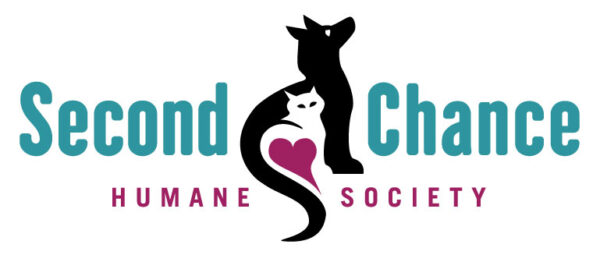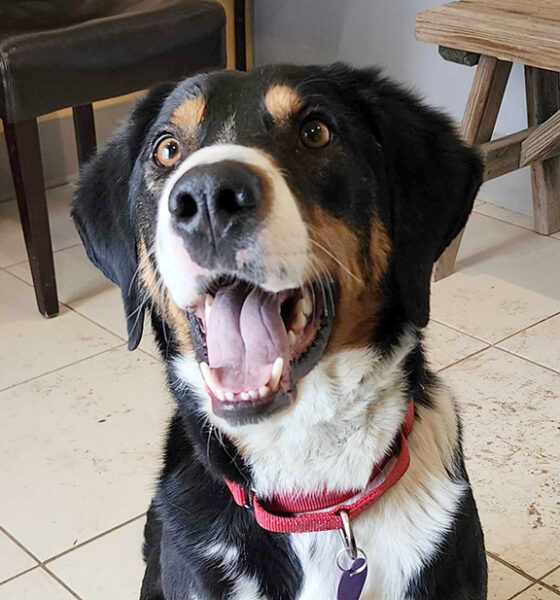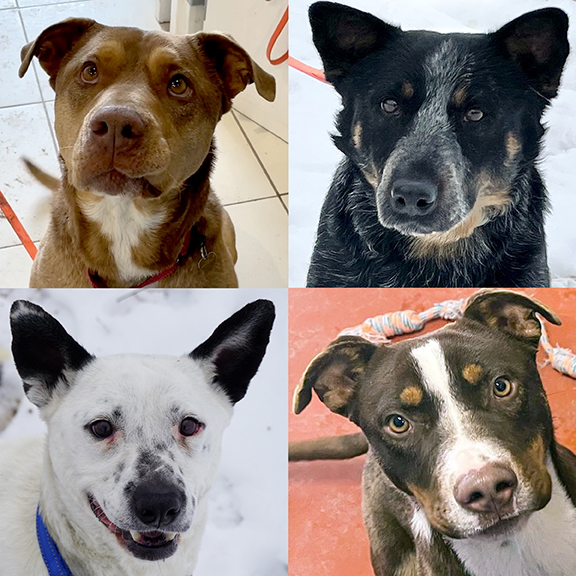
01 Mar Second Chance: Let’s Be Friends! Maybe, Maybe Not!
Second Chance Humane Society’s Animal Resource Center (SCHS) and Thrift Shops have been serving San Miguel, Ouray & Montrose Counties since 1994. The shelter is open to the public Tuesday through Saturday 11 to 5:30. Community veterinary services are available by appointment.
View shelter pets and services online: www.adoptmountainpets.org.
Go here for more on Dr. Shari DePauw of Second Chance. Second Chance veterinary clinic is open Tuesday, Wednesday, and Friday. Call (970) 626-9713 or email clinic@adoptmountainpets.org
Go here for more options from Second Chance.
Note: The following Pet Column was written in collaboration with Bob Hennessy, expert dog trainer.

You’ve heard it: “It’s okay, my dog is friendly.” To be perfectly honest, you should not believe it. Most dogs are not always okay and not always friendly.

Dogs are social creatures, but nearly every dog is “selectively social.” It’s a rare dog who gets along with everyone. That very social and not selective dog is like Will Ferrell in ‘”Elf.” The rest of the canine world is more like you. You probably like your spouse, your friends, and your sister. The guy next door who plays Nickelback at midnight? Not so much. You might not even like your sister all the time.
Dog sociability is a spectrum. There are a small number of dogs who are dog aggressive. They simply do not like other dogs. They may be wonderful with you, your family, other people, and even your family cat. But they should never be trusted in a situation where they could harm another pet.
On the other side of the spectrum is that rare social butterfly who can go anywhere and loves everyone. These Will-Ferrell-as-Elf dogs can get in trouble because their love may not always be reciprocated. An example: A typical goofy Labrador may lack the social boundaries and skills to be trusted by a dog with more anxiety. The goofy dog may get in the other dog’s face and be “Hey, let’s play! You wanna be my friend?!” In this scenario, Goofy Lab may end up at the bottom of two dogs fighting, followed by a trip to the emergency vet.
Your dog is likely somewhere in the middle. He may not like small dogs. She may only like male dogs. He might like all dogs except the one across the street. Working with your dog on such things as obedience, manners, wait/release, and clear communication while reinforcing positive play and good social skills may help her to become more tolerant.
There are ways to respect your dog’s need for space. Always be aware of body language (both your dog and other dogs you’ll meet). Never allow two dogs to get nose-to-nose at the end of tight leashes. That is a great way to cause stress, rage, and even a fight. Always check your environment and go the other way if you see a loose dog whose owner is paying more attention to their cell phone. Dog socialization is not something you trust dogs to work out themselves.
Dogs are predators, and they control their environment with their mouth and teeth. Fear and anxiety can cause aggressive reactions, and some dog parents are surprised when their dog lashes out. As descendants of pack animals, dogs create hierarchies. Weakness can lead to violence and dog fights are not pleasant to witness. If your dog has a confrontation, it doesn’t mean you have a bad dog. It just means something triggered a reaction and you can learn from that.
Freedom and socialization are earned. A dog needs to be trained, tested, and taken out in public – again and again. Over time, in different situations, you will learn what your dog likes and what he will tolerate. Even after your hard work and training, not every dog they encounter will be their friend, but that’s okay.
We get dogs in the shelter who are described as reactive and aggressive. We work with them to find their triggers and help them overcome their fear and aggression. One great case is Hank. He barked, lunged, and we thought he might be dangerous to our staff and potential adopters. Today, while he still needs an experienced person, we believe Hank can be a loved companion.

AND… To continue the Second Chance Highlights section, we want to share the following:

We are a regional shelter and work with partners all over Colorado and the Southwest. While our first priority is to help homeless pets in our Tri-county area, we also are fortunate to be able to help in areas beyond Ouray, Montrose, and San Miguel counties.
Although the “New Mexico Five” were not specifically from the reservation, they came from a shelter that works in and around that area. The shelter was full and needed to make space for more incoming dogs. We agreed to take five wonderful young dogs and give them a chance to be adopted here. Three of them are now safe and loved in new homes, and we know Betty and Scotty will find their people very soon. They’re healthy, happy, tail-wagging, people-focused dogs who will be a wonderful addition to a family.
We also brought in Crockett from the Four Corners area, a sweet guy who needed immediate medical care. He’s recuperating and will be introduced soon.
A few weeks ago, Tara (shelter manager) and Annie (interim Executive Director) took off on a road trip to the Four Corners area. They arrived back late on a Friday with three adult dogs and five of the the most adorable, wiggly, playful little puppies. Dolly, Jasper, and Duchess were spayed/neutered, given medical attention, and vaccinated. They are now available for adoption (Duchess has already gone home). The “little birds” are named Sparrow, Robin, Raven, Finch, and Chickadee. The boys have been adopted; the girls will be available soon.


Sorry, the comment form is closed at this time.